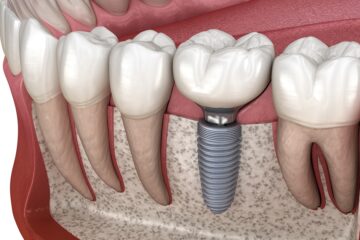Sexual Problems – Causes and Treatment of Sexual Dysfunctions
Some of us may have problems with sexual behavior, including menstrual irregularities, inability to control urges, or ejaculatory disorders. However, in some cases, the cause may be completely psychological. Those who suffer from sexual dysfunction typically have other psychiatric issues, such as anxiety disorders and depression. Assessment of performance anxiety, guilt, and stress is integral to the optimal management of sexual dysfunction. Some sexual dysfunctions are related to a biological process known as the human sexual response cycle, which was first proposed by William H. Masters and Virginia E. Johnson and later modified by Helen Singer Kaplan.
If the problem persists, your healthcare provider can help you identify the underlying cause and recommend a treatment plan. This treatment may include medical procedures or even referral to a mental health professional. Regardless of the cause, a medical professional, such as the ED doctors at Preferred Men’s Medical Center, will want to understand your problem, the severity of your symptoms, and how you can help yourself. Sometimes, sexual problems can be treated with a combination of medical and psychological interventions. If your sexual behavior is a sign of mental health problems, your physician may prescribe a mental health professional to help you overcome your disorder.
This study aimed to measure the prevalence of sexual problems associated with personal distress among U.S. adult women. The estimate for sexually related distress in women without distress is 40%. Although this figure may seem low, the number of women with sexually-distressing problems is not trivial. Among women aged 45-64, one in eight had distress-related problems associated with sexual arousal, orgasm, and desire.
A woman experiencing cancer may experience discomfort and fatigue in her body, which can affect her ability to enjoy sex. Other physical conditions can also affect a woman’s libido. Diabetes, Parkinson’s disease, and substance use disorders can all affect her sexual ability. Other psychological causes can include marital problems, work-related stress, and worries about body image. Another cause of sexual dysfunction is a psychological disorder, such as depression or anxiety.
Treatment for sexual dysfunction varies based on the severity and cause of the dysfunction. Minor dysfunction may be treated by education, counseling, and improved communication between the two partners. A sexually dysfunctioned individual should take an active role in their own health care. Depending on the type of sexual dysfunction, therapy may be necessary to correct the problem. Even mild dysfunctions can be cured with the proper treatment. You should not delay in seeking treatment for sexual dysfunction.
The main causes of sexual dysfunction include the following: age, health, and gender. Sexual dysfunction may affect a person of any age. Those in their 40s are more likely to suffer from it. A lack of adequate vaginal lubrication before and during intercourse may be an underlying cause. A sexual dysfunction may interfere with the quality of your relationship. A woman suffering from this condition may even be unable to have intercourse or experience orgasms.
Having sexual problems can be embarrassing, but they can also be a blessing in disguise. For some couples, their sexual problems can be a result of a lack of understanding or anger towards their partner. Others may simply feel bored or angry with their relationship. Whatever the reasons, speaking up can help you get help and get your life back on track. Visiting a healthcare professional is an important first step. Your doctor will ask you a series of questions about your sexual life and conduct tests to rule out underlying health conditions. Oftentimes, sex problems can be symptoms of an underlying health issue that can affect the way you feel about your relationship and your sex life.
The symptoms of sexual dysfunction may be physical, mental, or psychological, and they can affect a person’s enjoyment of sex. These problems can start at any stage of a sexual encounter and interfere with enjoyment of the activity. Some can develop in their adulthood, while others develop them after a previous sexual experience. They can occur suddenly or develop gradually over time. No matter how it develops, sexual problems are embarrassing and can cause significant distress.
For men, addressing sexual problems is a natural part of growing up. It helps men to stop apologizing for their actions, and to step forward as a matter of personal integrity. It also helps partners to see themselves differently, which strengthens their emotional bonds. Once a partner is comfortable with your intentions, he or she will be willing to give it a try. So, the next time you’re in a romantic situation, talk about how to solve sexual problems.
Despite the varying ages of the affected population, most of these conditions are related to aging. Older men are more likely to experience erection problems, and women are more likely to experience low sex desire. Marriage and marital status also affect the frequency of sexual problems. Separated, divorced, or remarried people are more likely to have sexual problems than single, married, or unmarried people. Nonmarried women are twice as likely as married men to suffer from sexual dysfunction.
Men can also experience sexual dysfunction due to everyday stress. Being tired, caring for young children, and experiencing boredom can all reduce a man’s desire for intimacy. Regardless of the cause, sexual dysfunction can be difficult to overcome, and there is no need to feel ashamed. The good news is that most cases can be successfully treated. You will be surprised at how quickly and easily you can achieve sexual satisfaction once you find the right treatment. So, why wait any longer?
Low libido can be caused by a number of different causes. A low testosterone level or elevated thyroid hormones can affect a man’s sex life. If you’re experiencing sexual boredom or low desire, talking to a doctor can help. A doctor can also prescribe hormone replacement to correct the imbalance. Whether you’re experiencing sexual difficulties, talk to your doctor and ask your partner for guidance. Sexual health is important for both you and your partner.









